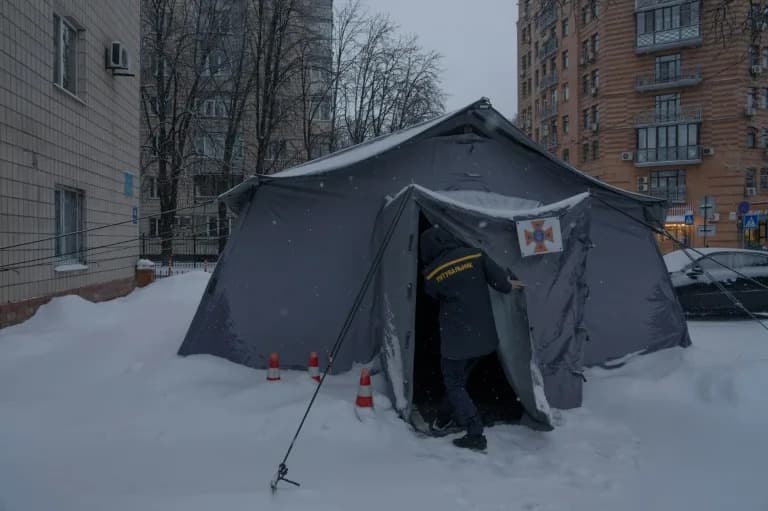Ukrainian winemakers and advocates are working to preserve a millennia-old viticultural tradition despite destruction linked to Crimea’s 2014 annexation and further damage since the 2022 invasion. Champions such as Sergiy Klimov and Anna Eugenia Yanchenko are promoting quality, local terroir and historical continuity. Initiatives range from a Kyiv street-harvest that turned 200 kg of grapes into 100 bottles for military support to UK-based import efforts showcased at the 2023 London Wine Fair. Promoters say supporting Ukrainian wine sustains the economy, preserves cultural identity, and introduces global consumers to distinctive regional varieties.
Preserving the Vines: How Ukrainian Winemakers Protect a Millennia‑Old Tradition Amid War

Ukrainian winemakers defend heritage and reinvent an industry under fire
When Sergiy Klimov talks about wine, his enthusiasm is contagious — even for people who don’t consider themselves connoisseurs. Since 2014 Klimov has promoted Ukrainian wine in multiple ways: running a chain of Kyiv wine bars that stock only Ukrainian vintages, representing Ukrainian bottles abroad, and tending a small experimental vineyard in Zarichanka in western Ukraine.
Klimov says promoting wines made in Ukraine is a way to preserve a tradition tied to the land for thousands of years. “It became my mission,” he told journalists. “I want to bring revolution to the industry.”
Ancient roots, modern threats
Ukraine lies within a region — alongside Moldova, Romania, Georgia and Azerbaijan — with a winemaking history that stretches back millennia. Archaeologists have found ancient Greek wine vessels, and grape fossils from the 11th to 9th centuries BC attest to very early viticulture in the area.
Many historical vineyards, especially in Crimea, were lost after Russia’s illegal annexation in 2014. Some were mined or otherwise destroyed, according to Anna Eugenia Yanchenko, a cultural scientist, sommelier and researcher of Ukrainian wine history. After Russia’s full-scale invasion in February 2022, additional wineries suffered damage, including Château Kurin in the south and ARTWINERY in Donetsk; others, such as Prince Trubetskoy and Wineidea, faced occupation.
Rebuilding quality and reputation
Those losses significantly reduced Ukraine’s winemaking capacity, but producers and advocates are determined to revive and improve the industry. Experts note that historical setbacks — from the phylloxera epidemic in the 19th century to Soviet-era nationalization in the 20th century, which prioritized volume over quality — left the sector with a damaged reputation that will take time to repair.
“Since winemaking appeared, the process of cultivating grapes and wine consumption has never ended here,”
Yanchenko, now based in Warsaw, emphasizes continuity of viticulture in the region even if exact origins remain uncertain. Revival efforts focus on quality, terroir-driven production and recovering lost appellations.
Champions at home and abroad
Tania Olevska, who moved to London in 2022, founded Ukrainian Wines Company UK to import and promote Ukrainian bottles in Britain. Early reactions were mixed, she says, but momentum grew after Ukrainian producers appeared at the 2023 London Wine Fair, where trade interest increased substantially.
Victoria Daskal, a wine writer and educator in London, believes rising UK interest is partly due to awareness of the war and partly to British drinkers’ curiosity for new regions. Klimov highlights Ukraine’s diverse soils and microclimates — from chernozem (black soil) to limestone and volcanic deposits — and notes more than 400 grape varieties recorded in the country.
Community action: Kyiv’s street harvest
To showcase local potential and community resilience, Klimov organized a neighborhood grape harvest in Kyiv. He describes the city as having "vertical vineyards" where early 20th-century vines still climb through buildings in some districts. Neighbors collected roughly 200 kilograms (about 440 pounds) of fruit, which produced 100 bottles of low-intervention natural wine featuring artwork by Ukrainian artist Waone. All proceeds were donated to funds supporting Ukraine’s armed forces.
“It’s important to show that Ukraine is a wine country. It has old roots, with wine on our streets,” Klimov said, adding that he hopes the communal project becomes an ongoing tradition.
Culture, identity and the future
For many advocates, defending winemaking is also defending Ukrainian national identity in the face of occupation and efforts to erase local histories. Yanchenko says rediscovering and promoting the country’s wine heritage helps Ukrainians reconnect with their past and share their culture with the world.
“It serves as a bridge, connecting us to other nations by offering a taste of our history, traditions, and the uniqueness of our land,” she said. “It’s a way to reconnect with our roots and proudly share what makes Ukraine truly special.”
Klimov and others argue that supporting Ukrainian wine — whether by buying a bottle, visiting a fair, or importing labels — is a practical, tangible way to help the country’s economy and culture during wartime.
Help us improve.


































